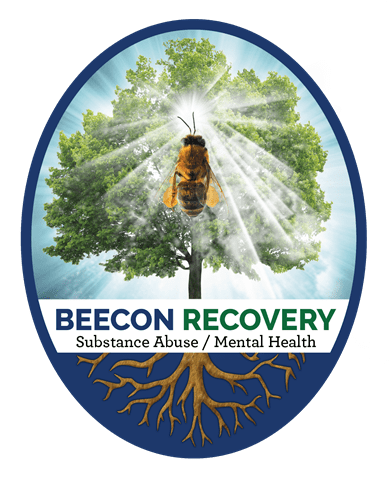Early addiction recovery presents individuals with a myriad of challenges, ranging from physical cravings to emotional turmoil and psychological triggers. Navigating this phase requires a delicate balance of resilience and support, as individuals often grapple with redefining their identities and coping mechanisms. Stress and anxiety, commonly heightened during this period of transition, can significantly impede progress if left unaddressed. These emotional hurdles not only exacerbate the risk of relapse but also hinder the individual’s ability to establish healthy coping mechanisms and maintain sobriety.
Acknowledging and actively addressing stress and anxiety are paramount for fostering sustainable recovery, as they lay the groundwork for building resilience, enhancing emotional well-being, and cultivating a foundation for long-term success in overcoming addiction.
Understanding Stress and Anxiety
Stress is the body’s natural response to perceived threats or challenges, triggering a physiological and psychological reaction. It often arises in situations where demands exceed an individual’s perceived ability to cope, leading to feelings of tension, pressure, or overwhelm.
Anxiety, on the other hand, involves excessive worry or fear about future events or situations. It is a persistent and often irrational feeling of unease that can interfere with daily life and functioning. Anxiety can manifest in physical symptoms such as rapid heartbeat, trembling, or sweating, as well as psychological symptoms like racing thoughts or difficulty concentrating.
Common Triggers for Stress and Anxiety in Early Recovery
In early recovery from addiction, individuals often encounter a variety of triggers that can intensify feelings of stress and anxiety. Some of the most common triggers include the following:
Withdrawal Symptoms: The physical and emotional discomfort experienced during withdrawal from substances can be a significant source of stress and anxiety. Symptoms such as cravings, nausea, insomnia, and mood swings can be overwhelming and challenging to cope with.
Uncertainty About the Future: Exiting the familiar routine of addiction can lead to feelings of uncertainty and fear about what lies ahead. Individuals may worry about their ability to stay sober, find employment, rebuild relationships, or create a fulfilling life without substances.
Social Pressures: Reintegrating into social circles where substance use was prevalent can be stressful, as individuals may face pressure to engage in old behaviors or feel isolated due to changing relationships. Additionally, navigating social situations without the buffer of drugs or alcohol can be anxiety-inducing.
Financial Difficulties: Addiction often takes a toll on financial stability, and early recovery may bring financial challenges such as debt, unemployment, or legal issues. The stress of managing financial responsibilities and rebuilding financial health can contribute to feelings of anxiety.
Emotional Turmoil: Early recovery is a time of heightened emotional sensitivity as individuals confront suppressed feelings, past traumas, and unresolved conflicts. Processing these emotions without the numbing effects of substances can be overwhelming and trigger anxiety.
Fear of Relapse: The fear of returning to addictive behaviors and undoing progress made in recovery is a common source of anxiety. Individuals may worry about encountering triggers or facing difficult situations that could lead to relapse, leading to constant vigilance and heightened stress levels.
Loneliness and Isolation: Transitioning away from a social network centered around substance use can leave individuals feeling lonely and isolated. Lack of support and connection can exacerbate feelings of stress and anxiety, making it challenging to cope with the demands of early recovery.
Overall, navigating these common triggers requires individuals to develop healthy coping mechanisms, seek support from peers and professionals, and prioritize self-care to manage stress and anxiety effectively during early recovery.

Coping Skills for Anxiety and Stress in Early Recovery
Here are some coping skills for individuals in addiction recovery who are dealing with anxiety and stress:
- Deep Breathing: Practice deep breathing exercises to calm the body and mind. Focus on inhaling deeply through the noise, holding the breath for a few seconds, and then exhaling slowly through the mouth.
- Mindfulness Meditation: Engage in mindfulness meditation to cultivate present-moment awareness and reduce stress. Focus on observing thoughts and sensations without judgment.
- Physical Exercise: Incorporate regular physical exercise into your routine to reduce stress and anxiety. Activities such as walking, jogging, yoga, or swimming can help release endorphins and improve mood.
- Healthy Lifestyle Habits: Maintain a balanced diet, stay hydrated, and prioritize adequate sleep to support overall well-being and resilience in recovery.
- Grounding Techniques: Use grounding techniques such as focusing on the five senses or repeating a calming mantra to bring attention back to the present moment and reduce anxiety.
- Creative Expression: Engage in creative activities such as painting, writing, or playing music as a way to express emotions and alleviate stress.
- Establish a Routine: Create a daily routine that includes structured activities, self-care practices, and relaxation techniques to provide stability and reduce anxiety.
- Social Support: Reach out to trusted friends, family members, or support groups for encouragement, validation, and practical assistance in coping with stress and anxiety.
- Cognitive-Behavioral Techniques: Practice cognitive-behavioral techniques such as challenging negative thoughts, reframing situations, and problem-solving to reduce anxiety and build resilience.
- Seek Professional Help: If stress and anxiety become overwhelming or interfere with daily functioning, seek support from a therapist or counselor who specializes in addiction recovery and mental health.
Find Support at Beecon Recovery
Beecon Recovery offers comprehensive support for individuals navigating addiction recovery, providing therapy programs, ketamine treatments, and additional services. We recognize the challenges that come with addiction recovery, which is why we are committed to offering tailored assistance and resources. Reach out to us if you are in need of additional support and guidance on your recovery journey.
Frequently Asked Questions in Regards with Coping Stress and Anxiety
What are some effective coping strategies for stress and anxiety?
Coping with stress and anxiety can be effectively managed through a variety of strategies including regular exercise, engaging in relaxation techniques such as meditation, practicing mindfulness, and seeking therapy. Adopting a holistic approach towards wellness can significantly improve one’s ability to manage stress and anxiety.
How can sleep affect my ability to cope with stress and anxiety?
Sleep plays a crucial role in coping with stress and anxiety. Adequate and quality sleep can enhance your resilience, making it easier to manage daily stressors and reduce the impact of anxiety on your life. Lack of sleep can exacerbate stress and anxiety, making it harder to cope.
Can exercise really help reduce stress and anxiety?
Yes, exercise is a powerful tool in coping with stress and anxiety. It promotes the release of endorphins, which are natural mood lifters, and can improve your overall sense of well-being. Regular physical activity can also enhance your resilience to stress.
What role does diet play in managing stress and anxiety?
A balanced diet can significantly impact your ability to cope with stress and anxiety. Consuming a variety of nutrients supports brain health and can improve mood, while reducing the consumption of caffeine and sugar can help minimize spikes in anxiety.
How does mindfulness help in coping with stress and anxiety?
Mindfulness encourages you to focus on the present moment, which can help break the cycle of worry and fear that often accompanies anxiety. By practicing mindfulness, you can develop a more resilient and calm response to the stressors in your life.
Can meditation replace therapy for stress and anxiety?
While meditation is a beneficial practice for promoting relaxation and mental wellbeing, it is not a replacement for therapy. Therapy offers professional guidance and strategies specifically tailored to your needs for coping with stress and anxiety.
What are some quick relaxation techniques for immediate stress relief?
Quick relaxation techniques include deep breathing exercises, progressive muscle relaxation, and visualizing a peaceful scene. These can be done almost anywhere and provide immediate relief from acute stress and anxiety.
How important is social support in coping with stress and anxiety?
Social support is vital in coping with stress and anxiety. Sharing your feelings with friends, family, or a support group can provide emotional comfort and valuable advice for managing your stress and anxiety.
What is the difference between stress and anxiety?
Stress is a response to a specific external trigger, whereas anxiety is a persistent feeling of apprehension or fear without a direct cause. Both impact mental and physical health, but coping strategies for stress and anxiety can help manage both conditions.
How can I build resilience to stress and anxiety?
Building resilience involves developing positive coping strategies, such as maintaining strong social networks, regular physical activity, practicing mindfulness, and seeking professional help when necessary. These can help you adapt and recover more quickly from stress and anxiety.
Can avoiding caffeine really help with anxiety?
Yes, reducing or avoiding caffeine can help with anxiety as caffeine can exacerbate symptoms by increasing heart rate and nervousness. Monitoring your caffeine intake can be a simple adjustment to improve your coping with anxiety.
What is the role of therapy in treating stress and anxiety?
Therapy plays a crucial role in treating stress and anxiety by providing a safe space to explore underlying causes, learn effective coping strategies, and develop tools for managing symptoms. It can be a valuable component of a comprehensive wellness plan.
How does stress affect physical health?
Stress can have a wide range of effects on physical health, including headaches, muscle tension, fatigue, and changes in appetite. Chronic stress can lead to more serious conditions like heart disease, high blood pressure, and diabetes. Adopting coping strategies for stress is important for both mental and physical health.
Can writing or journaling be a form of coping with stress and anxiety?
Yes, writing or journaling can be an effective coping mechanism for stress and anxiety. It allows for the expression of thoughts and feelings, helping to clarify and manage them, which can reduce the intensity of stress and anxiety.
What is the first step in coping with stress and anxiety?
The first step in coping with stress and anxiety is recognizing the signs and acknowledging the need for action. From there, exploring coping strategies such as exercise, meditation, therapy, and mindfulness can provide a foundation for managing stress and anxiety.
Facts About Coping with Stress and Anxiety
- Understanding Stress and Anxiety: Recognize that stress and anxiety are natural responses to challenging situations, especially during early recovery. They can serve as signals that something needs attention, prompting positive change.
- Mindfulness and Meditation: Engage in mindfulness practices and meditation to cultivate a sense of calm and presence. These techniques can help reduce stress and anxiety by focusing your mind on the present moment and fostering a deeper connection with your inner self.
- Physical Activity: Incorporate regular physical activity into your routine. Exercise releases endorphins, which are natural mood lifters, and can significantly reduce feelings of stress and anxiety.
- Healthy Nutrition: Maintain a balanced diet rich in nutrients to support your mental health. Proper nutrition can stabilize your mood and energy levels, making it easier to cope with stress and anxiety.
- Adequate Sleep: Prioritize getting enough restful sleep each night. Quality sleep is essential for emotional regulation and resilience, helping you manage stress and anxiety more effectively.
- Support Networks: Build and maintain strong support networks. Connecting with others who understand your journey can provide encouragement and practical advice, reducing feelings of isolation and anxiety.
- Professional Help: Seek professional help when needed. Therapists and counselors can offer strategies and tools tailored to your specific needs, empowering you to manage stress and anxiety in a constructive manner.
- Positive Affirmations: Use positive affirmations to reinforce a hopeful and confident mindset. Repeating affirmations can help shift your focus from negative thoughts to empowering beliefs.
- Creative Outlets: Explore creative outlets such as art, music, or writing. These activities can serve as therapeutic tools, allowing you to express emotions and reduce stress in a healthy way.
- Goal Setting: Set realistic and achievable goals. Breaking down larger tasks into smaller, manageable steps can prevent overwhelm and provide a sense of accomplishment, boosting your confidence in handling stress and anxiety.
By embracing these strategies, you can navigate the challenges of early recovery with optimism and resilience, transforming stress and anxiety into opportunities for growth and self-discovery.






